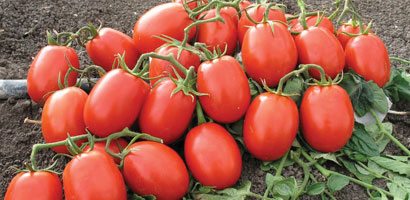Bayer announced the final large-scale pre-launch trials of Roma-type tomatoes to help growers address Tomato brown rugose fruit virus (ToBRFV). The trials, which begin later this month in Mexico, will include two varieties of Roma-type tomato that claim Intermediate Resistance (IR) to ToBRFV. This new variety could have serious implications for tomato seed trade, which has been struggling with new import requirements enacted by countries to limit the spread of this pathogen.
ToBRFV is a tobamovirus in the same family as the Cucumber green mottle mosaic virus, which had an outbreak in California in 2014. According to the European and Mediterranean Plant Protection Organization, ToBRFV is relatively new. The first disease symptoms were found in Israel in 2014 and the disease was discovered in 2015 on tomatoes in Jordan. Subsequently, outbreaks have occurred in Italy, Mexico, Turkey, China, the United Kingdom, the Netherlands, Greece, and Spain. In 2018, Germany and the United States experienced isolated outbreaks, which were eradicated, in glasshouse tomato crops.
In January, SeedWorld PRO published a whitepaper on new import requirements that the United States Department of Agriculture (USDA) issued in 2019, to protect U.S. agriculture from tomato and pepper seeds. ToBRFV was one of the viruses that the USDA was trying to keep out. USDA’s Animal and Plant Health Inspection Service (APHIS) estimated that the economic damages of an ToBRFV outbreak in the United States would cost $2.3 billion.
Tomato and pepper seeds need to be tested for ToBRFV. Testing facilities in the countries that grow the seeds are limited. Without a negative test the seeds could not enter the United States, limiting tomato seed production. According to the Federal Order, tomato and pepper fruit from Mexico and Canada must undergo a visual inspection. If customs do not see visual signs of the disease, the fruit may enter the country.
The type of IR Bayer has seen in these varieties is commonly referred to as the “symptomless carrier,” where, despite the presence of virus particles, the crop can show little or no symptoms of the virus in the leaf and/or fruit should the crop become infected by the virus. Following the trials, Bayer anticipates the products will be available for commercial sale in Mexico in 2021, to later be followed by offerings in other important markets around the world.
Read the full whitepaper here.











